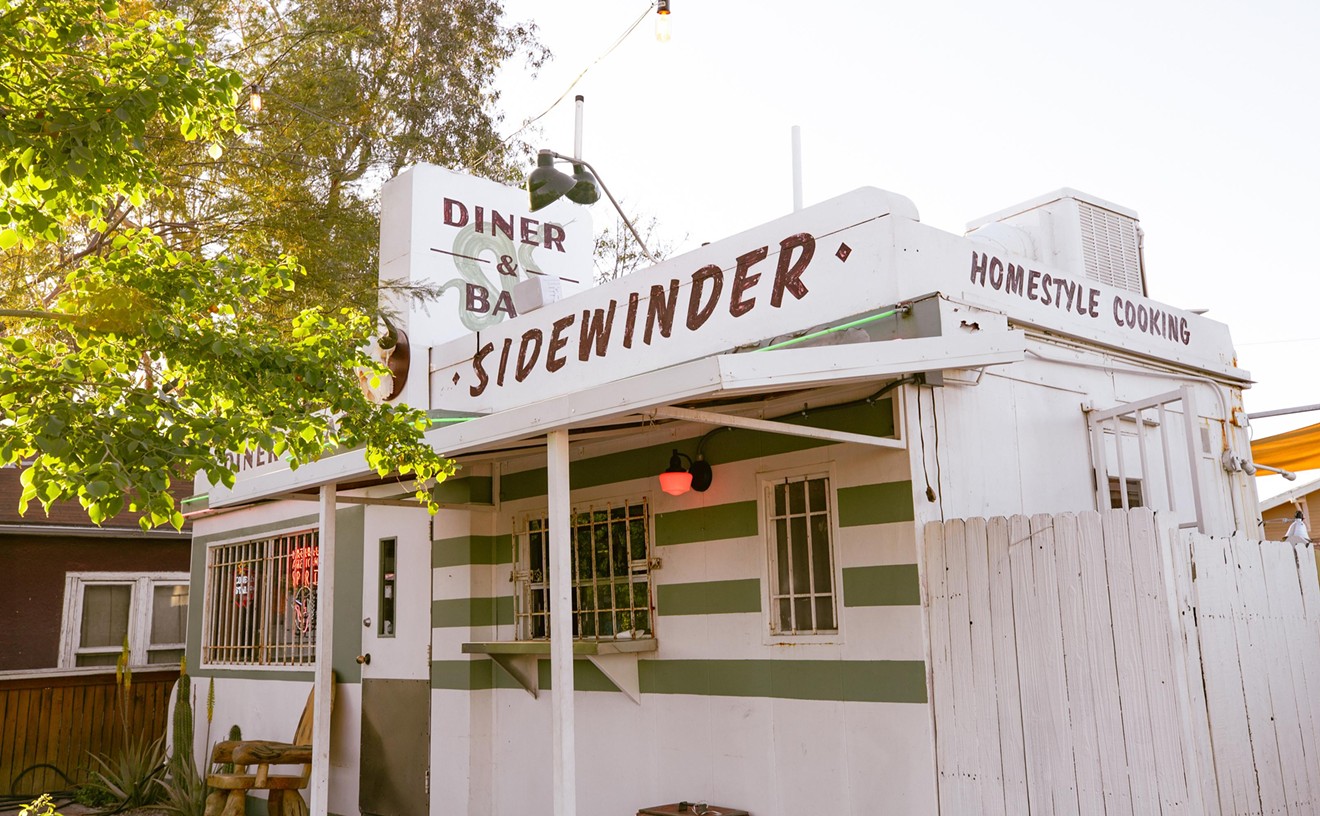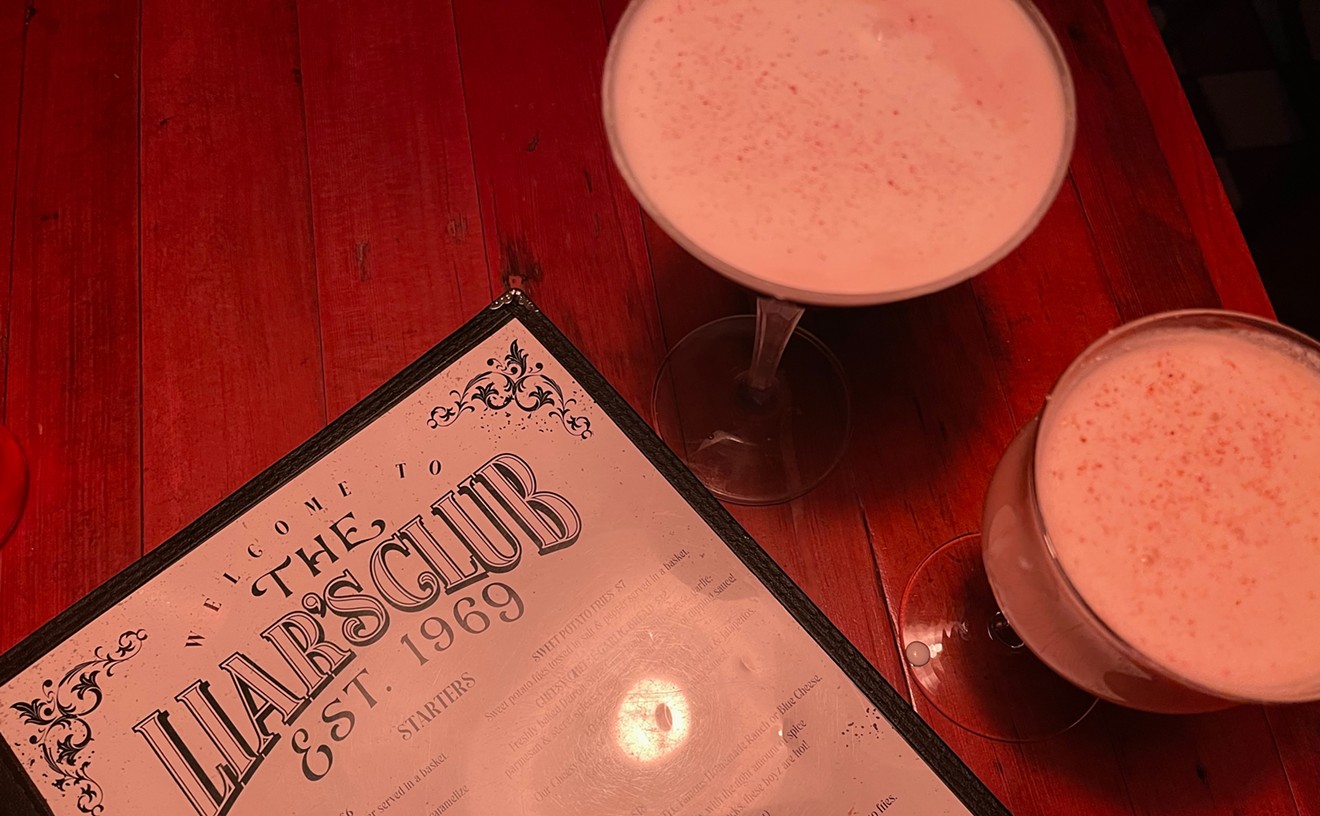How did the Will Ferrell-in-Spanish movie ever get made?
Casa de Mi Padre is a Spanish-language comedy starring Will Ferrell as a simpleminded, asexual Mexican cowboy who welcomes the return of his prodigal brother Raul (Diego Luna) to the family ranch but eyes Raul's beautiful fiancée with suspicion. The movie is, at its base, a spoof of telenovelas and mid-century B-westerns played unflaggingly straight. Director Matt Piedmont shoots stunning natural vistas with vintage Panaflex lenses then cuts to scenes obviously shot on a stage in front of painted "outdoor" backdrops. A Ken-style doll sometimes stands in for Ferrell's character for a few shots, most hilariously in a sex scene. There is a music-video sequence in which Ferrell sings about his life as a beer-swilling ranchero. There is a psychedelic vision-quest scene featuring a creaky animatronic mountain lion as Ferrell's spirit animal.
The whole endeavor could pass as the work of an enterprising college kid if it didn't feature a huge Hollywood star speaking impeccable Spanish, supported by a host of high-quality Mexican actors, including Luna and Gael García Bernal as a drug lord so decadent that he smokes two cigarettes at once. Funnier than any single joke within the movie is the overarching meta-joke — the simple fact that the movie was made. Why — and how — does this even exist?
"It's literally to provoke questions like that," Ferrell said over the phone last week. "People say, 'What do you have coming out next?' 'Oh, this movie I did entirely in Spanish' — and people start laughing. I don't know if you can really analyze it much beyond that. It's just preposterous."
Ferrell met Piedmont and Casa's screenwriter, Andrew Steele, when the latter two shared an office as writers at Saturday Night Live. "Andrew and I did a lot of the Robert Goulet stuff," Ferrell remembers, and, in fact, Casa could be thought of as a conceptual descendant of the sketch in which Robert Goulet rolls up in front of a painted backdrop in his convertible to promote his new album of hip-hop covers. Part of that joke is the unapologetically "bad" production value; another part is the non sequitur of the blatantly artificial ram that shows up at the end for a "staring contest" with Goulet; part of it is Ferrell as Goulet repeatedly saying "nigga." Casa de Mi Padre similarly revolves around a potentially racially insensitive gimmick, which is diffused by everything else being patently ridiculous.
Despite their shared history with Ferrell, both writer and director say they had reservations about the concept. When Steele first heard the idea from Ferrell's producing partner Adam McKay, "I kind of rolled my eyes," he admits. "Just an extended sketch of a telenovela for a parody didn't really do it for me." But then he and Piedmont fleshed it out, expanding the one-joke premise into a wide-ranging, anything-goes pastiche, with a subtle but persistent thread of social commentary.
"As much as we've been doing comedy for our entire careers, I think we all have a love-hate relationship with comedy," Piedmont says. "We also have a big love affair with all kinds of movies — spaghetti Westerns, Mexican cinema of the '60s and '70s. We thought, 'What if we could throw that all in there and play it deadly serious?'"
"This movie was so much about chance and restraint," Steele says. "We have every opportunity to make it jokey, but we just didn't want any of that desperate sweatiness there, so we kept pulling back. To people like us who have been around comedy for a long time, there's a kind of comedy just in that."
Indeed, in many scenes, there are no obvious cues for laughs. In one, Ferrell's Armando Alvarez has a conversation with his brother — a slick operator who the naïve cowboy is just starting to realize is a narco gangster — that ends up being quite possibly the most straightforward, unsentimental assessment of the War on Drugs ever seen in a Hollywood star vehicle.
"We did want to make it something a little — without sounding pretentious — a little more politically charged," Steele says.
Casa is hardly a minstrel show: As much as Ferrell's sore-thumb visual otherness in his family is the underlying joke of the movie, it was important to the actor — who only spoke Spanish at a high school level before the shoot — to sell that joke by becoming as fluent as possible.
"If the joke was just me speaking bad Spanish, then I think you cross over a line that's not acceptable," Ferrell says. "And it's a joke you've seen before."
That said, all involved expect the log line of "white American playing Mexican" to induce knee-jerk hand-wringing. "Someone's going to find it racist," Piedmont says. "I just think whenever you enter into this territory of an [American] actor playing a Mexican, that's just going to happen. But we were very careful to be respectful of, you know, humans."
"Within the realm of comedy, it's our right and our job to take chances like this," Ferrell says. But he also notes: "Many of the Latino press who have talked to me are like, 'How did you guys know about the narcos? It's funny, but the way you tell the story is kind of true.'"
"I know that when Will came and pitched us the story, he was a bit worried about offending people," says Darlene Caamaño Loquet, a Cuban American whose company, Nala Films, provided Casa's budget (which she'll only say was "under 10 [million]"). "And it was a smart move on his part to partner with a company like ours because we are Hispanic."
In fact, this Spanish-language film made by non-Spanish speakers is being pitched specifically to the Hispanic audience. "The Latino market in the U.S. doesn't want to see films made just for Latinos," says Paul Pressburger of Pantelion, a joint venture between Univision parent company Televisa and Lionsgate, which is opening Casa on 350 screens. "They want to see movies that are general Hollywood movies but that have something special about them that resonates with Latinos."
Pressburger says the film's appeal to the Latino demographic was apparent through internal screenings. "The first thing that happened is that they screened it for the Lionsgate executives," he says. "So all of the Hollywood white executives go into the room, and they watch it, and they thought the movie was entertaining and funny. Then my team, which is a bunch of Mexican Americans and Latino Americans, go and see the movie, and they liked it even more. And then I had the executives from Mexico up [for a screening], and they were on the floor, rolling with laughter. So, the more Latino you were, the more Mexican you were, the more you appreciated how funny it was."
Nala and Pantelion are blatantly hoping to exploit Ferrell's star power to reach a larger audience than the average Spanish-language movie. But though Ferrell is surely a big star, his attempts to step outside of his expected niche have not exactly caught fire with audiences. (Think of last year's indie Everything Must Go or his turn as Woody Allen's surrogate in Melinda and Melinda.) And even if Ferrell's ability to propel an indie to breakout status on his star power alone wasn't in doubt, Casa is for all intents and purposes a foreign-language art film. Not only is it subtitled, but in its multitiered homage and intentional sloppiness, it requires a certain level of media literacy in addition to just plain literacy.
"Listen, it's a tough one," Loquet admits. "Because it is in a different language, and you're asking people to read subtitles. [But] if you look at the numbers of who's really spending money at the theaters, Hispanics are the number one indexing group. For us, as long as it makes the U.S. and the film business realize that Hispanics are the mainstream, that's success enough."










